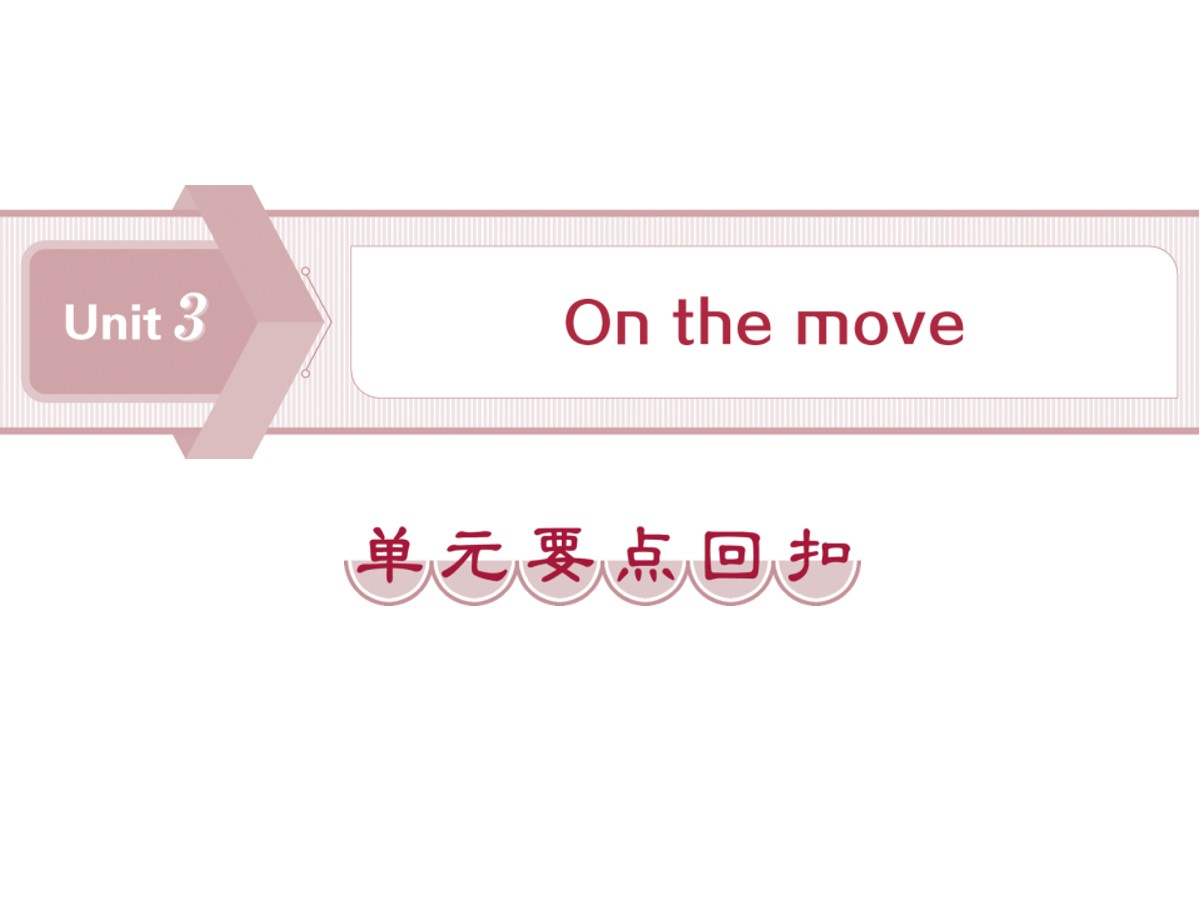《Food for thought》SectionⅢ PPT
![]() 0
0
 《Food for thought》SectionⅢ PPT
《Food for thought》SectionⅢ PPT
《Food for thought》SectionⅢ PPT
第一部分内容:专项突破
情态动词(一)
课堂要点精析
情态动词表示说话人的语气或情绪,如可能、意愿、猜测、义务、需要等。
情态动词有以下特征:
1.有一定的词义,但不能单独作谓语,后面接动词原形。
2.没有人称和数的变化(have to 除外)。
3.多数情态动词都有过去式,如can—could,may—might, will—would, dare—dared等。情态动词的“时态”并不是区分时间的主要标志。很多情况下,情态动词的原形和过去式都可用于多种时态。
二、情态动词的基本用法
1.can与could的用法
(1)表示能力,常译为“能,会”。could是can的过去式,表示过去的能力。
◆I can speak English and French, but I can’t speak Japanese.
我会讲英语和法语,但是不会讲日语。
◆When she was 8 years old, she could play the piano very well.
当她八岁时,她就能很好地弹钢琴了。
(2)表示许可或请求(在陈述句中属于“许可”,在疑问句中属于“请求”),常译为“可以”;could比can的语气更加委婉。
◆—Can/Could I use your computer?(请求允许)
——我可以用一下你的电脑吗?
—Of course, you can.(表示允许)
——当然可以。
(3)表示推测,意为“可能”,常用于否定句和疑问句中。
◆—Can the lady over there be our boss?
——在那边的那位女士可能是我们的老板吗?
—It can’t be her.I saw our boss in the office just now.
——不可能是她。我刚刚看见我们的老板在办公室里。
◆My glasses aren’t here.Where can I have put them?
我的眼镜不在这里。我可能把它们放哪儿了呢?
must和have to的区别
(1)二者都是“必须”的意思,have to表示客观的需要,must表示说话人主观上的看法,即主观的必要。
◆We must finish the work before lunch. 我们必须在午饭前完成这项工作。(强调有义务早完成工作,不要拖延。)
◆We have to finish the work before lunch.
我们必须在午饭前完成这项工作。(强调客观情况迫使,如不完成就会……,是不得已而为之。)
(2)在否定结构中,don’t have to表示“不必”,mustn’t表示“禁止”。
... ... ...
Food for thought PPT,第二部分内容:课后跟踪训练
Ⅰ 选词填空
1.“All passengers ________ (can/must) wear seat belts,”an air hostess said.
2.You ________ (mustn’t/needn’t) tell anybody else about this—it’s a secret.
3.By the time she was eight, she ________ (could/can) read Greek and Latin.
4.They________ (have to/must) stay in the office last night because of the snowstorm.
5.We ________ (need/dare) learn from others in an openminded way.
Ⅱ 语法与写作
1.他如此强壮以至于我不敢和他打。
He is so strong that I ________________ against him.
2.有时他的工作可能很无趣,并且他每天不得不工作很长时间。
Sometimes his job can be boring, and he ________________ for a long time every day.
3.红灯亮时不许过马路。
You ________________________ when the traffic lights are red.
4.你了解这个情况,因此我不必进一步解释了。
You understand the situation, so I________________ any further.
5.我们不敢开他玩笑,以免他生气。
We ________________________ on him lest he should become angry.
... ... ...
Food for thought PPT,第三部分内容:写作指导
推荐信是向别人推荐某人、某物或某地,让对方接受自己的想法、主张。推荐理由要语气恰当,礼貌当先。同时,推荐信要简洁明确、理由充足,具有合理性和说服力。一般使用“三段式”写作。通常包括:
第一段:说明写信目的;
第二段:阐明推荐理由;
第三段:表达希望对方接受自己的推荐并期盼回复。
1.The reason why I recommend you to listen to the song is that the music is a good symbol of Chinese culture.
2.I’m very excited to learn that you are going to visit America this summer.I’m writing this letter to offer my recommendation.
3.In addition, I’ll recommend a reasonable tour route to you so that you can save a lot of time.
4.We’d like to recommend a hotel near the subway to you in order to get around New York easily.
5.I’ll be more than happy if you can take my ideas/suggestions into consideration.
6.I’ll be extremely pleased if you can consider my recommendation.
... ... ...
Food for thought PPT,第四部分内容:典题示例
假设你是李华,刚来你校的交换生约翰请你为他推荐一个生日聚餐的好去处。请根据以下要点提示,给他写一封信介绍你去过的一家中国餐馆。
1.餐馆位置:市中心,交通便利;
2.就餐环境:干净、舒适;
3.菜品特色:种类丰富、美味可口、价格实惠。
注意:1.词数80左右(开头和结尾已给出,不计入总词数);
2.可以适当增加细节,以使行文连贯。
①介绍……给…… ________________
②推荐 ________________
③方便的,便利的 ________________
④各种各样的饭菜 ________________
⑤一个不错的选择 ________________
①我很高兴向你介绍一家中国餐馆过生日。我和家人上周末去了那里。
普通表达:I am happy to introduce a Chinese restaurant to you for your birthday.I went there with my family last weekend.
高级表达:___________________________________________
______________________________________________________ __________ (用where引导非限制性定语从句改写)
②那里面的环境非常舒适干净,有美妙的音乐,墙上还有让人赏心悦目的画。
普通表达:The environment inside is very comfortable and clean and there is fantastic music and amazing pictures on the walls.
高级表达:_____________________________________________
______________________________________________________ (用with复合结构改写)
... ... ...
《Food for thought》PartⅤ PPT 第一部分内容:写作指导 食品介绍类文章属于说明文,要求语言准确,按照被说明事物的实际情况,运用最确切的词句,恰如其分地进行介绍。要使读者容易..
《Food for thought》PartⅣ PPT 第一部分内容:命题专家说题型 在高考听力理解测试中,数字与计算属于十分常见的题型,话题大多涉及以下几个方面: (1)基数词、序数词、分数、百分数..
《Food for thought》PartⅢ PPT 第一部分内容:教材原文呈现 Healthy You! Is there any truth behind the saying You are (1) what you eat?We put this to the test (2) by askin..
















 关于我们
关于我们 备案号:冀ICP备18037400号-20
备案号:冀ICP备18037400号-20